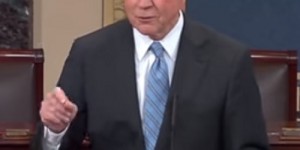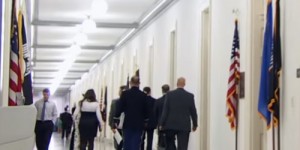 Jim Gilchrist, MMP Exclusive — Proponents of comprehensive immigration reform keep telling the rest of us that the whole immigration system is so “broken” that a piecemeal approach won’t do much to fix it.
Jim Gilchrist, MMP Exclusive — Proponents of comprehensive immigration reform keep telling the rest of us that the whole immigration system is so “broken” that a piecemeal approach won’t do much to fix it.
That’s pretty lame reasoning!
Let’s take a simple example of the dramatic effect a piecemeal approach would have on the problem of visa overstays…
It’s been known for a long time that 40% of those who enter the U.S. legally do so with a temporary visa then overstay their welcome.
Last year alone, about 9 million people received temporary visas to the U.S. Over 3.6 million of them tore up their visa and decided to live here the rest of their lives. Many went to school, found employment, bought houses, and raised families.
Coming here under false pretenses, they now wonder why their hard work and other achievements are not appreciated. They insist that we overlook the fact that they broke our laws – laws every other country has in place.
The rest of us work hard too, and most of us have accomplished quite a lot in terms of family, career, voluntarism, military service, and public service. We would not dare to presume that any of this excuses law-breaking, even if we disagree with the law.
Yet we admit millions of people every year who do not mind breaking this law or that law, if it seems a tad inconvenient. Now the President and Congress are deliberating the best way to reward these people with an amnesty and path to citizenship.
Because the visa overstay problem is not intertwined with any other aspect of immigration, it begs for a piecemeal solution.
Tracking visa overstays, we are told, is not possible. But DHS seems proud of its biometric system for identifying those who have overstayed their period of admission. After extolling its effectiveness in USA Today, they go on to say that its expanded use would cost $3 billion, not realizing that’s chump change against the $400 billion budget for development of the F-35 fighter jet.
So even when we have the tools to solve our illegal immigration problems, there is reluctance to use them. More evidence, as if more were needed, that Washington really is not serious about enforcing our immigration laws.




























